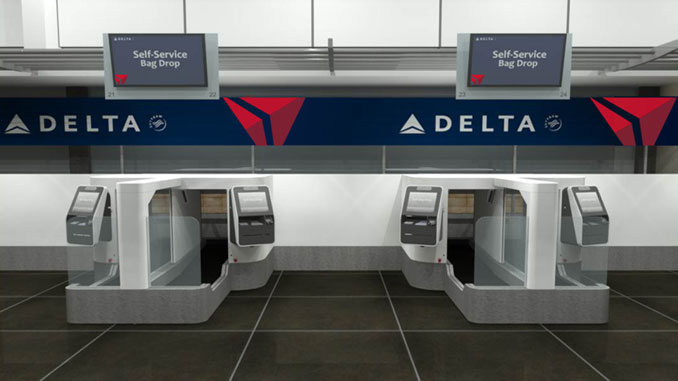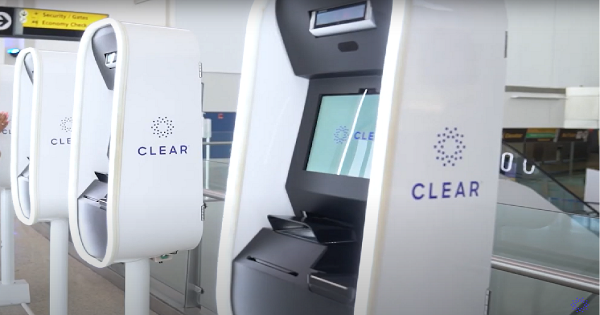Delta is to trial self-service bag drop with a biometric component.
The airline is trialling four self-service bag drops at Minneapolis-St. Paul International Airport this summer.
At three of the bag drops , staff will check the passenger identity, but at the fourth the kiosk will carry out the check. Facial recognition will compare the details in a passenger’s biometric passport with the image captured by the kiosk.
To use the self-service bag drops, passengers check-in online or at an airport kiosk. They will have to attach a bag tag printed at a kiosk and then take the tagged bag to the bag drop.
To start with, only passengers with passports will use the biometric unit. Passengers with other types of ID will use the three other self-service bag drops.
At all four bag drops, passengers put their bags on the automated baggage belt once their identities are confirmed. The belt then takes the baggage for security checks and to be loaded into the plane.
The airline says the investment in the kiosks will mean passengers save time and Delta agents will be freed up to seek out deliver a more proactive and thoughtful service.
The four units are costing $600,000, equating to a fair number of ground staff.
Delta doesn’t give any reason why passengers would choose the biometric unit over the staffed ones.
Delta says the self-service bag drops are “a natural next step in its work to streamline airport processes.” Last year, the airline rolled out radio frequency identification (RFID) technology that allows the carrier to track bags in real-time via chips included in passengers’ bag tags.
Passengers using Delta’s app can know where their baggage is, from the moment they check in to the minute the bags arrive at their destination.
N.B. Image credit: delta.com







